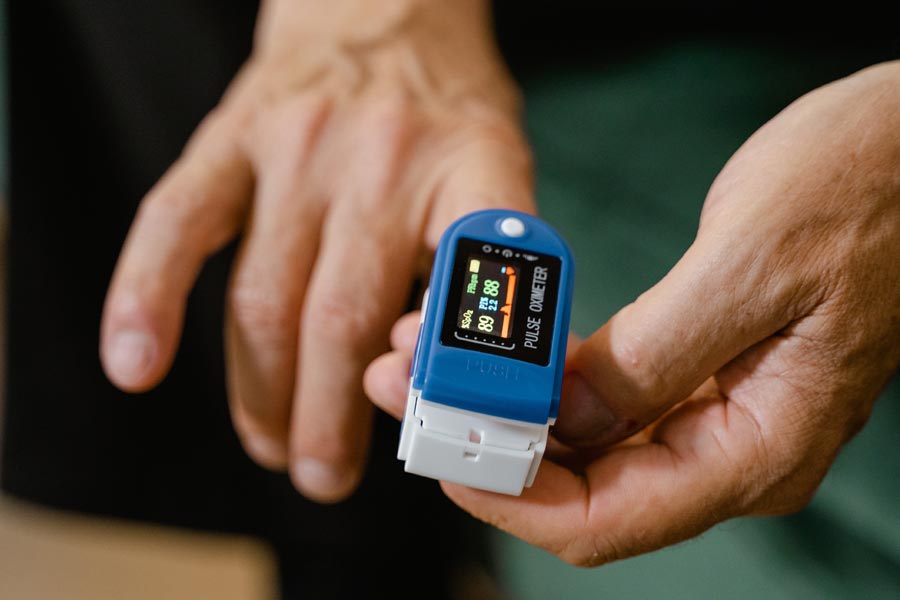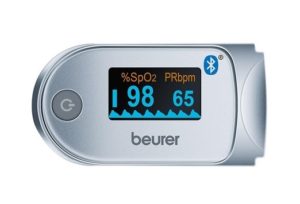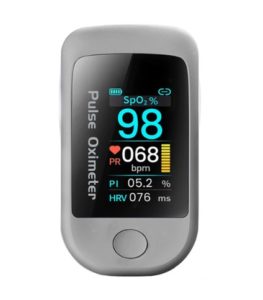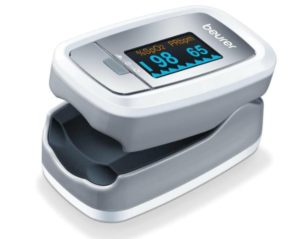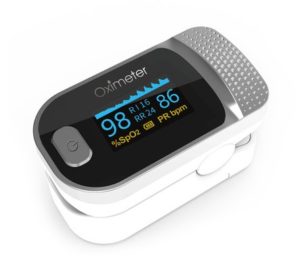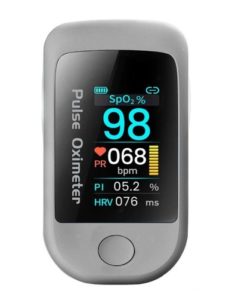The use of pulse oximeters has been on the rise in the past few years. Being able to monitor someone’s heart rate and oxygen levels is a great way to ensure they’re healthy and safe.
The best pulse oximeters are simple devices and they work by using a light to measure the amount of blood that is flowing through the vessels of a person’s fingertip. The more blood flow, the more light will be absorbed. The strength of the absorption depends on whether or not oxygen is present in the bloodstream.
In this blog, we will help you find the very best pulse oximeters, with a complete buyer’s guide to help you make an informed decision. You’ll learn how to spot quality, what features are important to you and where to get them.
Best Thermometers in NZBest First Aid Kits in NZ
Table of Contents
How to choose the Best Pulse Oximeters for you
The best pulse oximeter is right for you, meaning it needs to have the features you want. Here are some things to consider before purchasing a pulse oximeter:
Compact design: If you’re looking for a device to use while out and about, then go for something that’s small enough to fit in a pocket. Most good pulse oximeters are fairly small and easy to carry around with you at all times.
Apps compatible: This is another feature that’s becoming more common. It has been designed to make your best pulse oximeter even more accessible if you want it to be. There’s no better way of getting valuable data on your health than with an app on your phone.
Bright light: If you’re looking for a device to take readings at night, then you’ll want to find a pulse oximeter that uses bright LED lights. This will make it easier for you to take readings in dimly lit areas.
Large display: Many pulse oximeters have large LCD displays so you can easily see the numbers on them. This makes it easier to get accurate readings and it will also help you figure out at a glance how your blood oxygenation level is changing over time.
Beeping sound: If you’re looking for a device that will let you know when it’s finished taking your pulse rate, then look for one that will make a beeping sound. These are generally easier to read than the flashing lights, which can be distracting.
Battery life: Most good pulse oximeters will have a battery life of about six months. It’s essential to take this into account if you’re going on trips or are likely to be away from home overnight.
READ NEXT: Best Bathroom Scales | Best Tens Machines | First Aid Kits
The Best Pulse Oximeters NZ
1. Beurer Bluetooth Pulse Oximeter
The Beurer Bluetooth Pulse Oximeter is an innovative way of networking. The possibility of exchanging data via Bluetooth with your mobile phone makes it also possible to transfer all measured values to the Beurer HealthManager” and evaluate them there. The Beurer HealthManager provides extensive pre-configured reports, which will allow you to evaluate all your health parameters. It has memory space for 100 individual measurements by the finger-in-finger-out principle.
2. Smart Fingertip – Pulse Oximeter
The Smart Fingertip Pulse Oximeter is an updated version of the previous oximeters. The main new feature of this device is the Bluetooth-enabled technology so that you can always have it sync with your phone. This means that even if you are in an extreme sporting event or just travelling, and you want to know your blood oxygen saturation and pulse rate, the Smart Fingertip will let you know their accuracy and reliability.
3. Beurer PO30 Pulse Oximeter
The Beurer PO30 Pulse Oximeter is a lightweight and compact device that makes it ideal for use at home or on the go. The Beurer Pulse Oximeter displays oxygen saturation, pulse and heart rate in a full-colour graphic pulse display. There are four views available on the display and adjustable brightness settings which can be adjusted to suit your needs as well as an automatic switch-off timer in a few minutes after not being used.
4. Fingertip Pulse Oximeter SpO2
The Fingertip Pulse Oximeter is an advantageous pulse oximeter because it has a high-definition two-colour 0.96-inch OLED screen display. The interface of the device can have four different display modes: blood oxygen, pulse, bar graph and pulse waveform. The low battery warning will also alert you when your battery power is running low.
5. Bluetooth Enabled Blood Oximeter 
The Bluetooth-enabled Blood Oximeter Finger is an oximeter that has a two-colour HD OLED screen, which supports both horizontal and vertical displays. It is also very portable and compact for easy carrying so you can bring it anywhere you want to go. With this innovative fingertip pulse oximeter, there are many accurate measurement methods available that provide an accurate measurement of 1BPM or 1% of the measured value. It can read pulse rate and O2 saturation within 10 seconds.
FAQ’s
Is the pulse oximeter easy to use?
The best pulse oximeters should be easy to use, with a simple user interface that makes it easy to see your readings by inserting the device on a finger.
Why is a pulse oximeter needed?
The best pulse oximeters are the device that monitors blood oxygen saturation levels. Blood oxygen saturation is a useful way to assess someone at home during times of illness or recovery. Conditions like sleep apnea and heart failure can cause low blood oxygen saturation levels. A pulse oximeter can help monitor these conditions and ensure they are being treated effectively.
We hope you enjoyed our blog post on how to choose the best pulse oximeter for you. Adding a pulse oximeter to your routine can be a great way to get a better idea of your blood oxygen levels in your body, as well as your heart rate. It also helps to know what to do with your blood oxygen and heart rate information.
Disclaimer – We are not body oximeter experts. The advice and counsel given on this information are to be used as a resource guide, not meant as a replacement for professional medical advice. This Blog does not provide medical advice in any manner. For specific questions on personal medical issues, please consult with your doctor.
